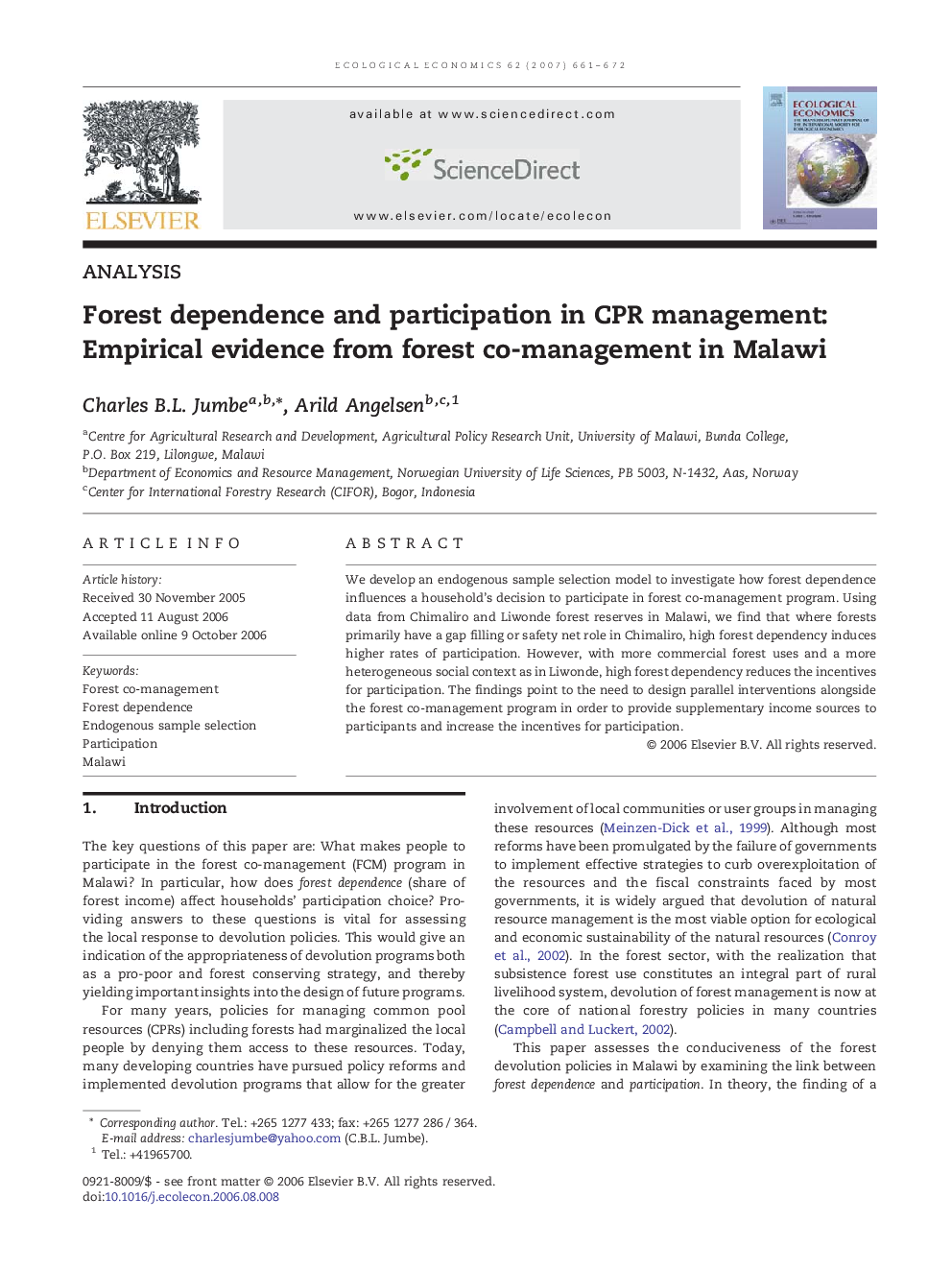| کد مقاله | کد نشریه | سال انتشار | مقاله انگلیسی | نسخه تمام متن |
|---|---|---|---|---|
| 5051960 | 1476414 | 2007 | 12 صفحه PDF | دانلود رایگان |

We develop an endogenous sample selection model to investigate how forest dependence influences a household's decision to participate in forest co-management program. Using data from Chimaliro and Liwonde forest reserves in Malawi, we find that where forests primarily have a gap filling or safety net role in Chimaliro, high forest dependency induces higher rates of participation. However, with more commercial forest uses and a more heterogeneous social context as in Liwonde, high forest dependency reduces the incentives for participation. The findings point to the need to design parallel interventions alongside the forest co-management program in order to provide supplementary income sources to participants and increase the incentives for participation.
Journal: Ecological Economics - Volume 62, Issues 3â4, 15 May 2007, Pages 661-672